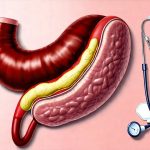High blood pressure, often referred to as hypertension, is a widespread health concern affecting millions globally. While frequently associated with cardiovascular disease – heart attacks, stroke, and kidney failure – the intricate relationship between high blood pressure and liver function is less commonly understood but equally significant. The liver, a vital organ responsible for hundreds of functions including detoxification, protein synthesis, and metabolic regulation, is surprisingly vulnerable to the long-term effects of elevated blood pressure. This isn’t merely about direct damage; it’s a complex interplay of physiological changes that can gradually compromise liver health, often silently progressing until more serious complications arise.
The connection between these two systems – cardiovascular and hepatic – stems from shared vascular networks and metabolic demands. High blood pressure places increased stress on all organs, including the liver, impacting its blood supply and oxygenation. Chronic hypertension can lead to structural changes within the liver itself, as well as influencing systemic inflammation that further exacerbates liver dysfunction. Recognizing this link is crucial for proactive health management, enabling individuals with hypertension to adopt lifestyle modifications and work with their healthcare providers to protect both their heart and their liver.
The Mechanisms Linking Hypertension & Liver Damage
The impact of high blood pressure on the liver isn’t a sudden event but rather a gradual process driven by several interconnected mechanisms. One key factor is altered hepatic blood flow. Chronically elevated blood pressure can cause changes in the resistance within the small vessels supplying the liver, potentially leading to reduced blood flow – a condition known as hepatic ischemia. Reduced oxygen delivery compromises the liver’s ability to function optimally and repair itself. Furthermore, hypertension often leads to increased oxidative stress throughout the body, including within the liver cells (hepatocytes). Oxidative stress damages cellular structures and contributes to inflammation.
Another significant mechanism involves the renin-angiotensin-aldosterone system (RAAS), which plays a crucial role in blood pressure regulation but also has direct effects on the liver. Activation of RAAS not only elevates blood pressure, but can induce fibrosis – scarring – within the liver. Over time, this fibrosis can progress to cirrhosis, a severe and irreversible form of liver damage. Finally, many medications used to manage hypertension, while beneficial for cardiovascular health, can themselves have hepatotoxic effects (harmful to the liver) if not carefully monitored by a physician.
It’s important to note that this isn’t a one-way street. Existing liver disease can actually worsen hypertension. A damaged liver struggles to regulate blood volume and electrolyte balance, contributing to increased blood pressure. This creates a vicious cycle where each condition exacerbates the other.
Consequences for Liver Health & Function
The consequences of prolonged high blood pressure on liver function are multifaceted and range from mild abnormalities in liver enzyme tests to severe liver disease. One common manifestation is non-alcoholic fatty liver disease (NAFLD), which often accompanies hypertension, obesity, and metabolic syndrome. NAFLD involves the accumulation of fat within the liver cells, potentially leading to inflammation and further damage. In some cases, NAFLD can progress to non-alcoholic steatohepatitis (NASH) – a more aggressive form characterized by significant inflammation and fibrosis.
Beyond fatty liver disease, hypertension can contribute to hepatic encephalopathy, a serious complication where toxins normally processed by the liver build up in the bloodstream and affect brain function. This can manifest as confusion, disorientation, and even coma. Moreover, chronic hypertension increases the risk of developing portal hypertension – elevated pressure within the portal vein which carries blood from the digestive system to the liver. Portal hypertension can lead to varices (enlarged veins) in the esophagus and stomach that are prone to bleeding, a life-threatening complication. Early detection and management of both hypertension and any associated liver issues are paramount.
Recognizing Liver Dysfunction Related to Hypertension
Identifying liver dysfunction linked to high blood pressure requires careful evaluation by a healthcare professional. Often, individuals with early-stage liver damage experience no noticeable symptoms. However, as the condition progresses, certain signs may emerge:
– Fatigue and weakness
– Loss of appetite
– Nausea or vomiting
– Abdominal discomfort or bloating
– Jaundice (yellowing of the skin and eyes)
– Dark urine and pale stools
These symptoms are not specific to liver disease and can be caused by a variety of conditions, making accurate diagnosis essential. Diagnostic tools commonly used include:
1. Blood tests: To assess liver enzyme levels (ALT, AST), bilirubin, albumin, and other markers of liver function.
2. Imaging studies: Ultrasound, CT scan, or MRI to visualize the liver and detect fatty infiltration, fibrosis, or structural abnormalities.
3. Liver biopsy: In some cases, a small sample of liver tissue may be taken for microscopic examination to confirm diagnosis and assess the extent of damage.
The Role of Lifestyle Modifications
Fortunately, many lifestyle modifications can significantly mitigate the impact of hypertension on liver health. These interventions address both blood pressure control and overall metabolic health.
– Dietary changes: Reducing sodium intake, increasing consumption of fruits, vegetables, and whole grains, and limiting processed foods, saturated fats, and sugary drinks are crucial. A Mediterranean-style diet is often recommended.
– Regular exercise: Aim for at least 150 minutes of moderate-intensity aerobic exercise per week. Exercise helps lower blood pressure, improve insulin sensitivity, and reduce inflammation.
– Weight management: Losing even a small amount of weight can have a significant impact on both blood pressure and liver health.
– Alcohol moderation or abstinence: Excessive alcohol consumption is directly toxic to the liver and should be avoided.
Managing Medication & Seeking Regular Checkups
Medications for hypertension are often necessary, but it’s essential to work with your doctor to choose medications that minimize potential hepatotoxic effects. Some antihypertensive drugs can place additional stress on the liver or interact negatively with existing liver conditions. Regular monitoring of liver function tests while on these medications is crucial.
Furthermore, individuals with hypertension should undergo regular checkups with their healthcare provider, including periodic assessment of liver health. Early detection and intervention are key to preventing progression to more severe liver disease. Proactive management, combining lifestyle changes with appropriate medical care, offers the best defense against the damaging effects of high blood pressure on liver function. This holistic approach not only protects vital organs but also promotes overall well-being and a higher quality of life.


















